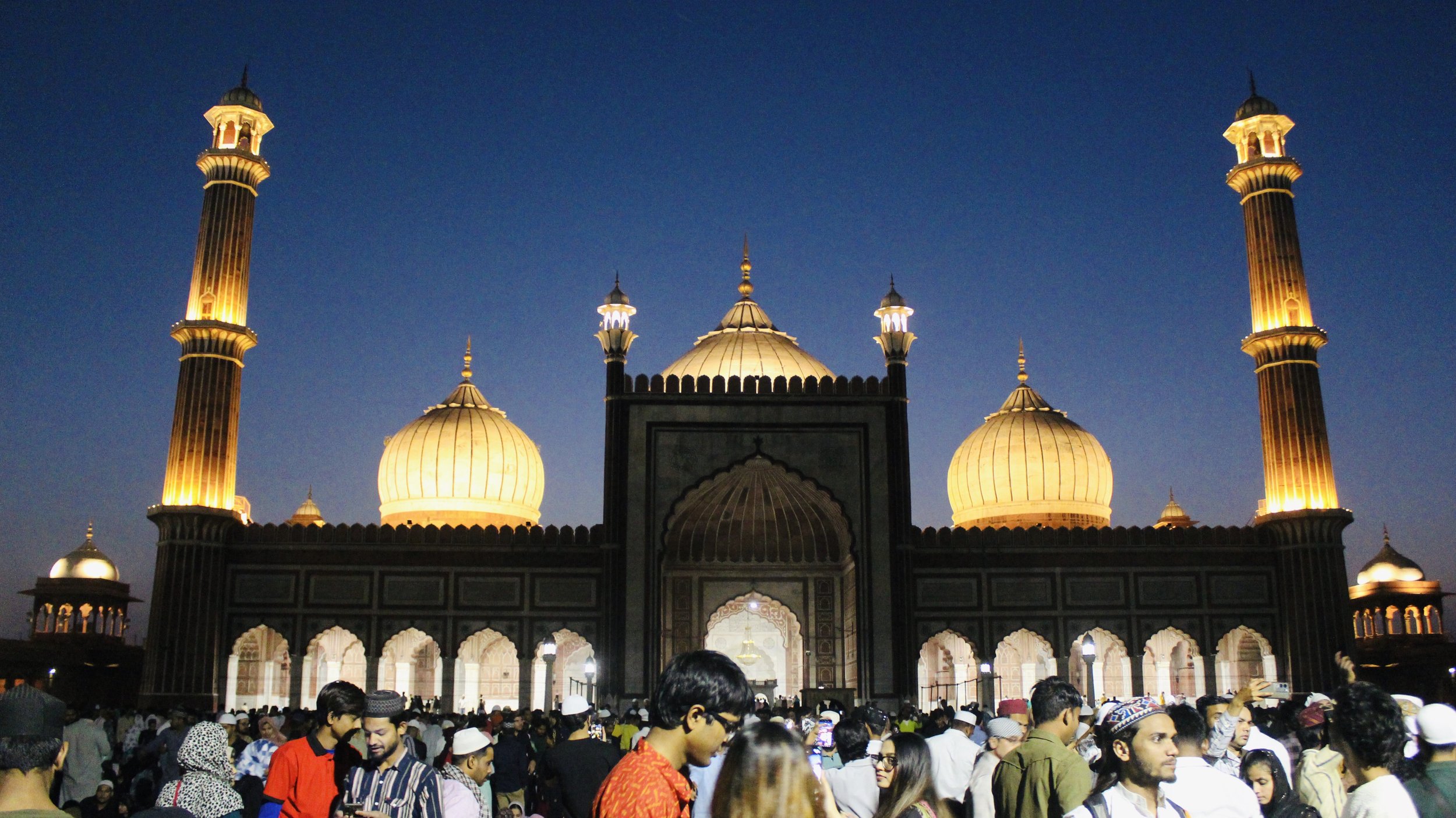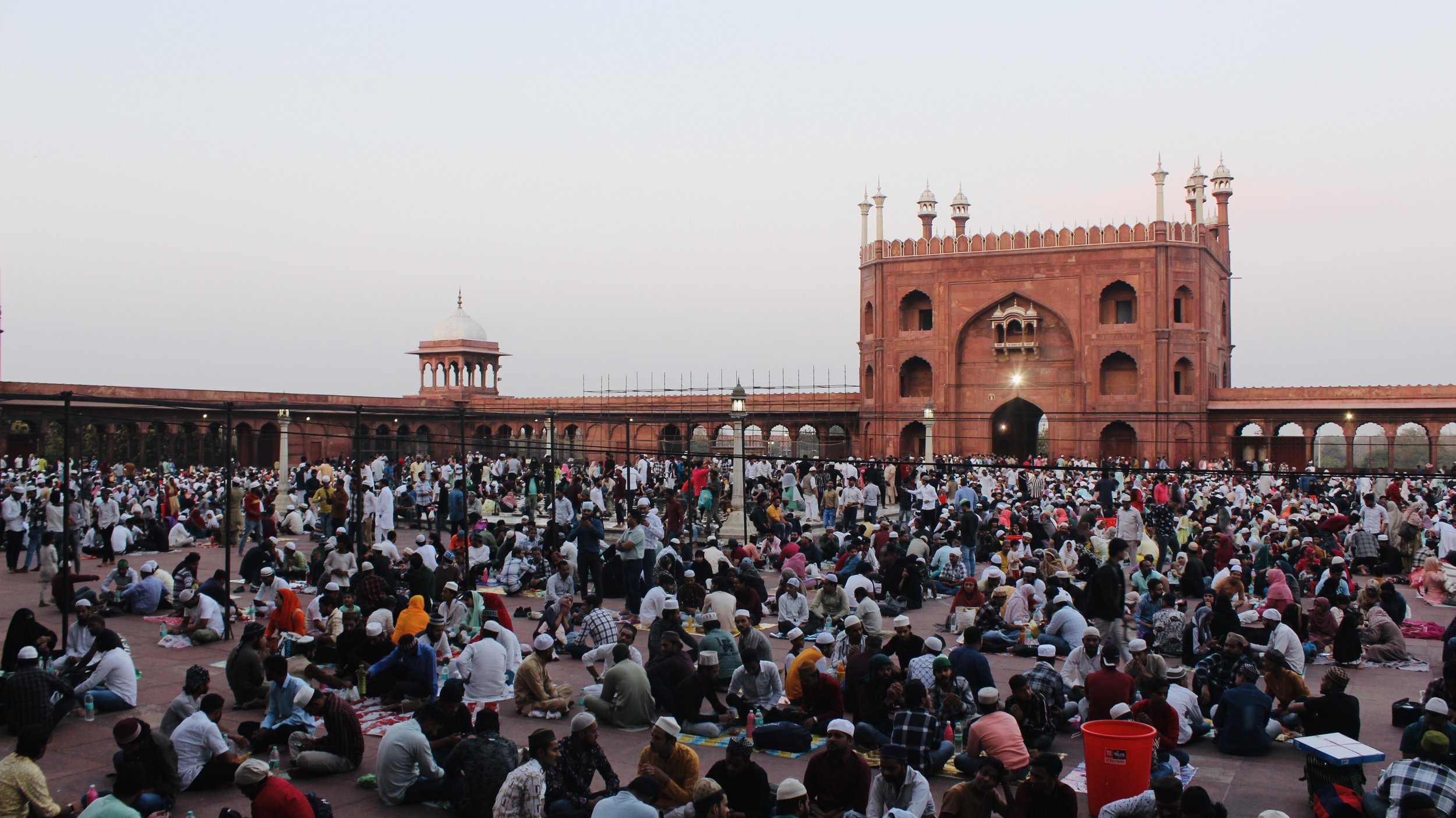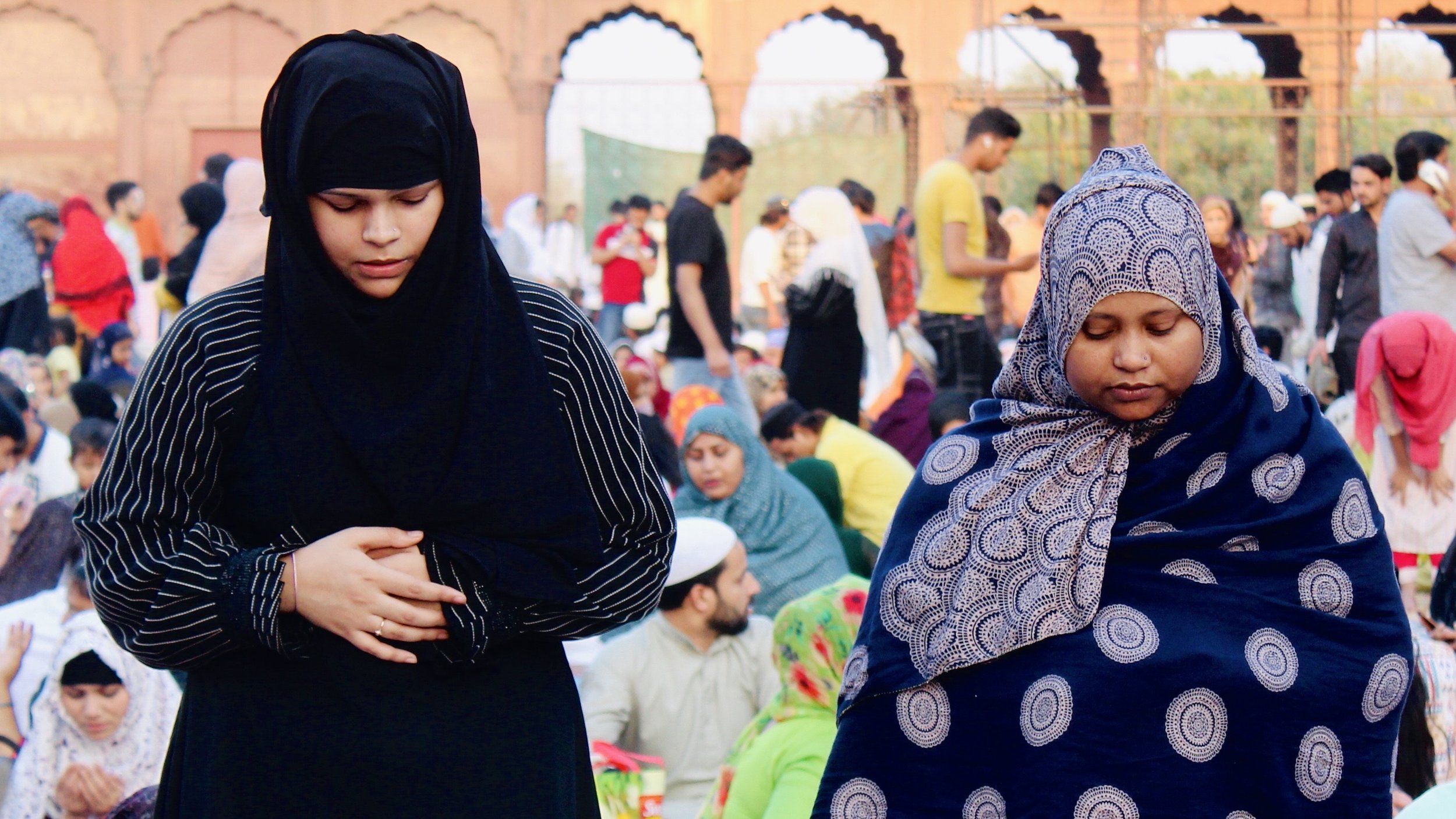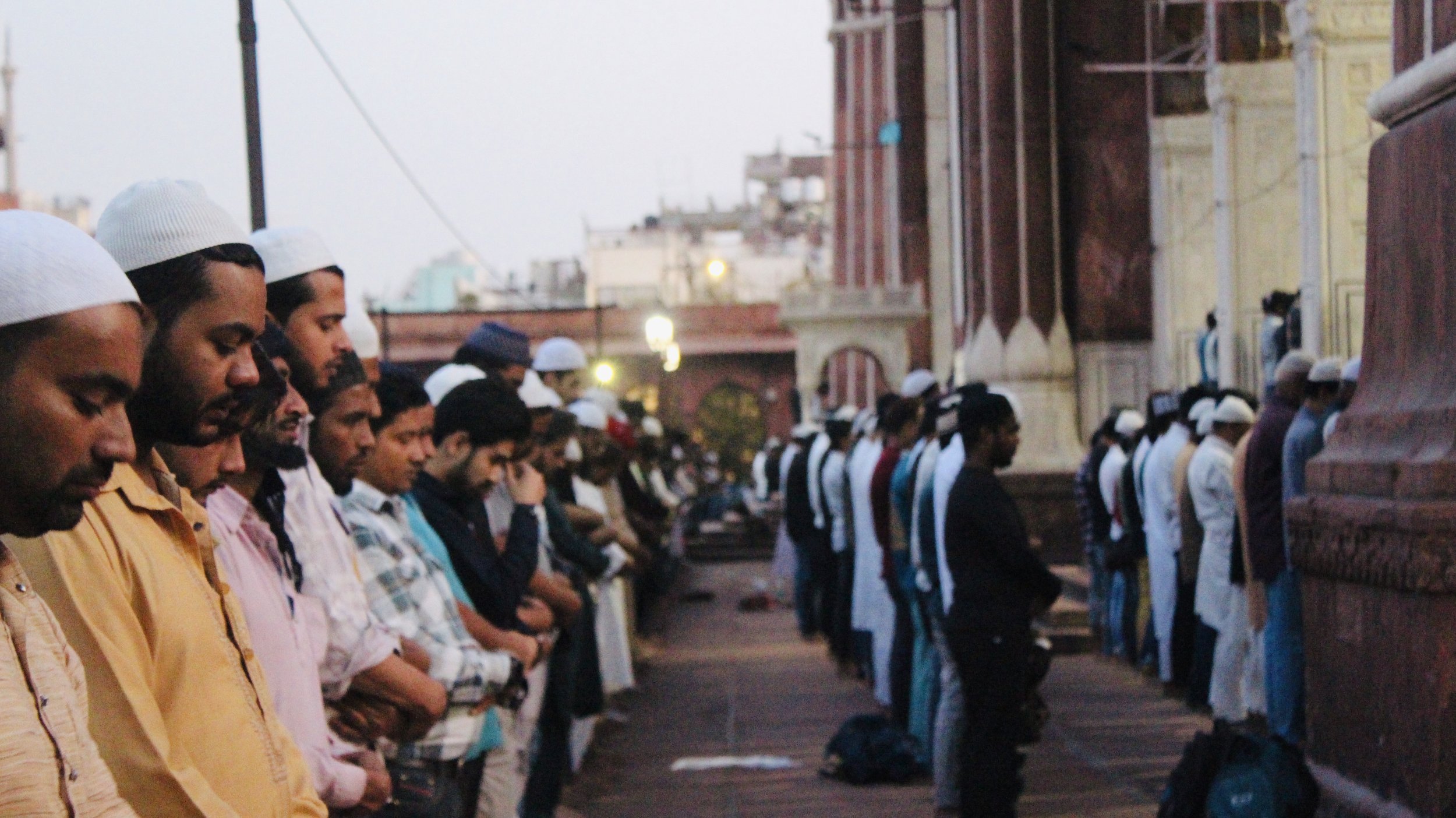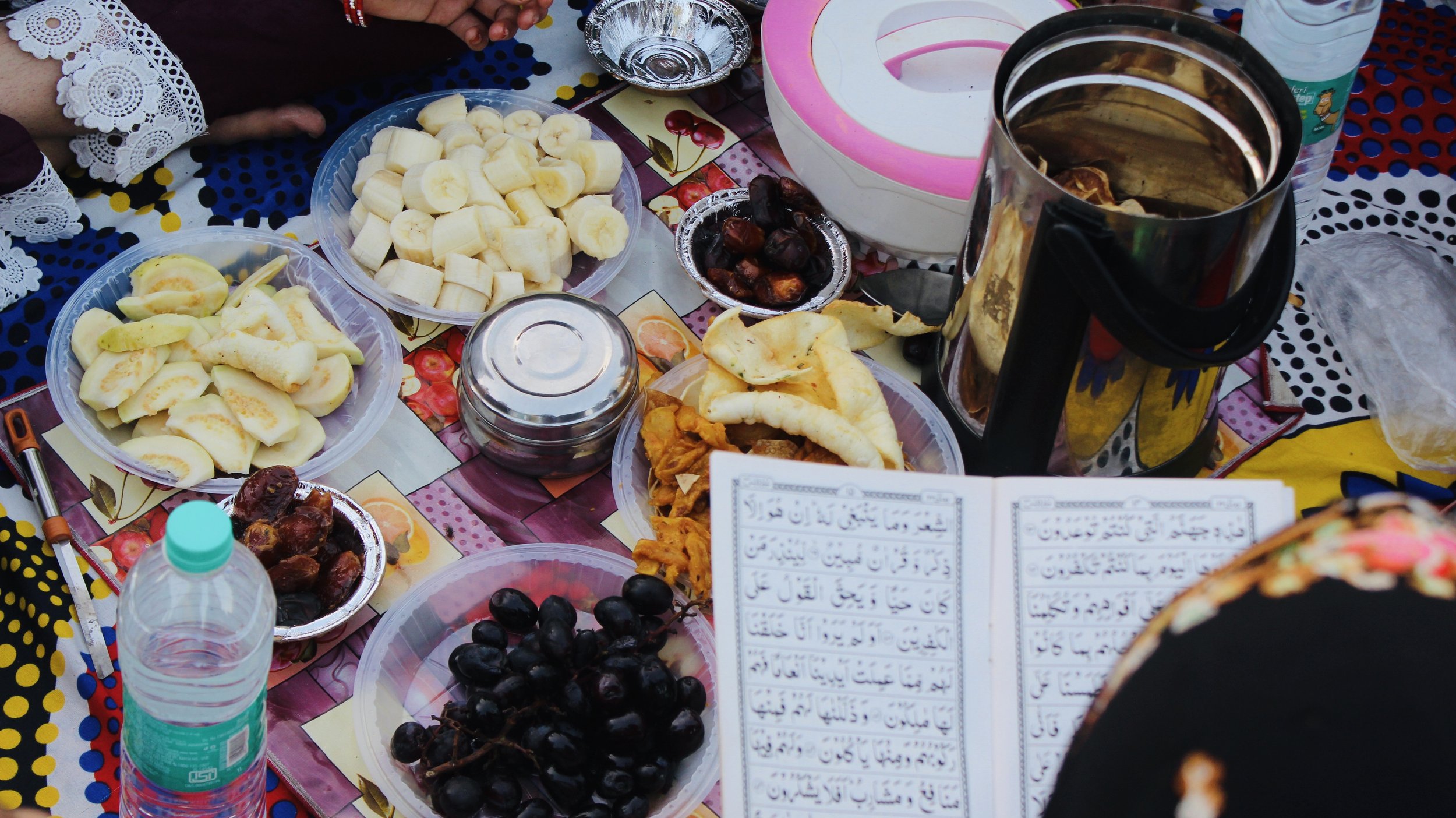Photo Essay: India’s Muslims Gather In The Thousands To Break Daily Ramadan Fast
NEW DEHLI — As the evening sun casts down its warm glow over the city of New Delhi, the steps of Jama Masjid become a hive of activity during the month of Ramadan. A diverse crowd gathers within its sacred walls, numbering in the thousands. They come bearing dishes from their homes and nearby markets, preparing for the evening meal also known as Iftar to break their fasts.
Aftab Ahmed, a 40-year-old father accompanied by his wife and two daughters, is a familiar face at Jama Masjid during Ramadan. For him and his family, attending Iftar at the mosque has become a cherished tradition, eagerly anticipated long before the arrival of the holy month.
“We come here together every year during this month,” Aftab said, a smile gracing his face as he speaks. “My daughters decide it even before Ramadan begins.”
READ: Muslims Welcome Ramadan Amid Heightened Security And Concern For Gaza
Ramadan, the holiest month in Islam, holds profound significance for millions of Muslims across India and the world. This sacred month — observed with fasting, prayer and reflection — brings communities together in a spirit of devotion and solidarity.
During Ramadan, Muslims fast from dawn, that meal known as Suhoor, until sunset, with Iftar being the counterpart meal. Believers abstain from food, drink, smoking and other physical needs. This act of self-discipline fosters empathy for the less fortunate and strengthens spiritual resilience.
Mohammad Naseer-ud-din, 65, a prominent figure in the area near Jama Masjid, sheds light on the essence of Ramadan in India. He emphasizes that a pivotal moment during this holy month. Naseer-ud-din generously provides meals to those in need at Jama Masjid throughout Ramadan.
He highlighted how mosques, community centers and homes become vibrant hubs, where families and friends converge to partake in this shared experience.
“These gatherings,” he noted, “are not just about nourishing the body but also nurturing the soul through prayers and communal bonds.”
Photos by Shadab Farooq
Shumayla Khan, 24, found herself in Delhi recently for a doctor’s visit, knowing nobody in the city. Unsure of where to break her fast, she turned to Jama Masjid for Iftar.
“I was wondering the whole day where I should go to break my fast, and then my sister suggested that I come here,” she said. “As I arrived, seeing hundreds of people breaking the Roza together made me feel that I am at home.”
Mohammad Mehmood, a 25-year-old daily wage laborer in Old Delhi, faced a day with scarce work and an empty wallet. With limited resources, he made the decision to seek solace at the grand mosque.
“During Ramadan, whenever I have less money or none at all, I come here for Iftar," Mehmood said. “This place, and the people here, offer food to everyone. I feel blessed that I work around the vicinity and have a place to break my fast.”
In recent years, there has been a concerning rise in Islamophobia and discrimination against Muslims across India. This discrimination has manifested itself in various forms, including hate speech, targeted violence and marginalization. Such injustices not only violate the fundamental rights of Muslim citizens, but also undermine the ethos of religious pluralism and tolerance enshrined in India's constitution.
Despite the challenges faced by the Muslim community, Salma Begum, a 54-year-old practicing Muslim, exemplifies the resilience and faith that define Ramadan observance.
Before breaking her fast, Begum said she dedicates her prayers to the well-being of India’s Muslim community.
“We are witnessing continuous discrimination and rising hatred over the years," she said. "I pray to Allah that our hardships come to ease.”
As she and many others observe Ramadan with faith and determination, their prayers serve as a powerful reminder of the resilience and strength inherent in the human spirit.
"In spite of the trials that we endure,” Begum said, “our steadfast devotion to our faith sustains us.”
Shadab Farooq is an independent journalist based in New Delhi, India.

